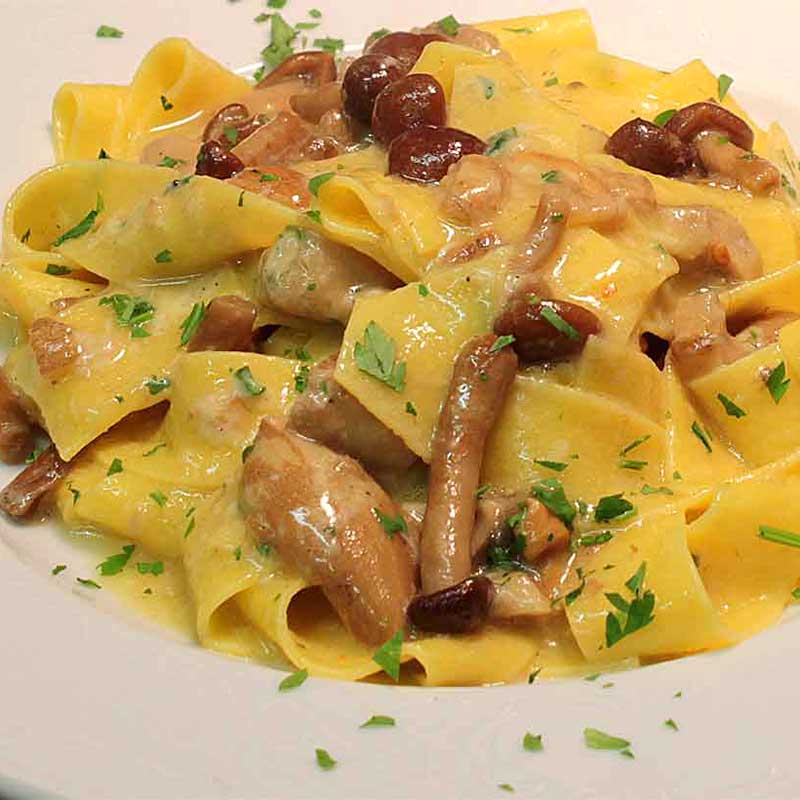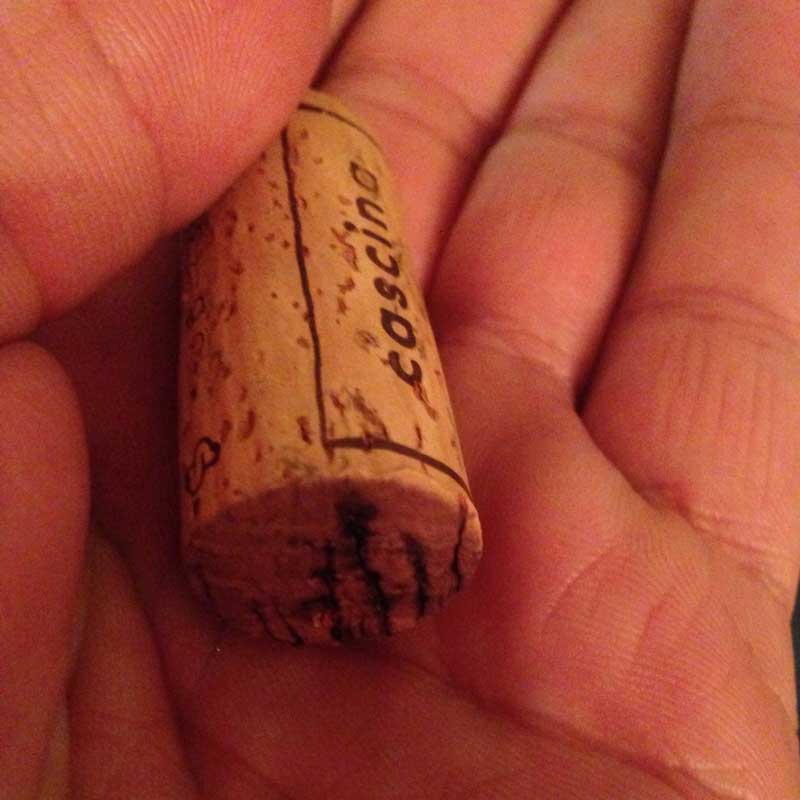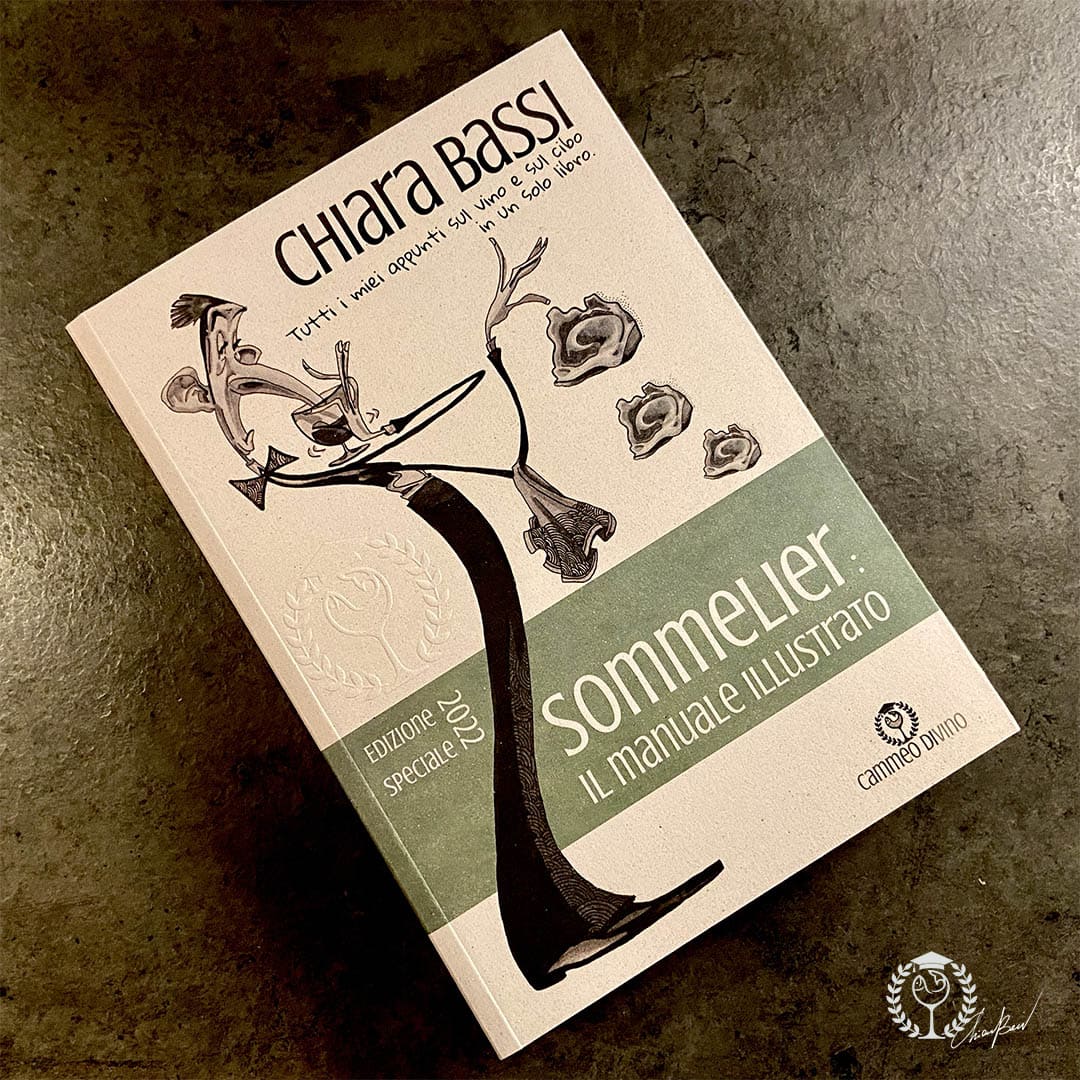How many times have you happened at a restaurant to sniff a wine with your gaze blankly searching for a neuron capable of making such an unknown synapse? In this short guide I will teach you three easy tricks to understand whether a wine tastes corked!
When does a wine taste corked?
"Great is the fortune of him who possesses a good bottle, a good book, a good friend."
Molière
Before answering this question, let's start with the ABCs: do you know what a corky smell is?
The corky smell is due to a substance, TCA (trichloroanisole), which is formed when the cork is attacked by a fungus, Armillaria mellea... which is none other than the very common nail fungus (I'm sure you too have eaten it at least once in your life!). Well, yes, the very common nail fungus that you buy in the supermarket and spaddle with tagliatelle or eat trifled on a bruschetta is the dreaded culprit responsible for the cork disease that irreparably damages wine!
I can already imagine you thinking: "But how Chiara... you're telling me that my beloved chiodini mushrooms that I gulped down even last night with a tray of pappardelle are those parasitic thugs that make me throw away euros and euros of wine and make me look like mexxa at restaurants with my woman or friends? Are you kidding?"
No, I'm not joking: the cork mushroom actually contains a protein toxin that only disappears with cooking at a temperature above 65°C. This is why, if it attacks the cork, it forms TCA and imparts that unbearable smell of wet dog, damp cellar or mouldy newspaper... Yes, the tender and bitterish flesh of the nail fungus cap is the main enemy of winegrowers, sommeliers and consumers! This pest is devastating because it can kill the trees on which it grows mainly in the rainy autumns of Europe and North America.
"So Chiara if I want to safely pan-fry these delicious noodles myself how the hell do I do it?
You've probably cooked prickly pears without even knowing that they were toxic when raw! To be 99.99 % sure, just boil the mushroom for 10-15 minutes in water, taking care to discard the water before cooking.
But back to us... The smell of cork in wine identifies a defect that can be easily recognised (if the diseased cork looks like this below).
Thanks to my friend Gianluca Morino, owner of Cascina Garitina for unwittingly lending me the photo! ☺️
You can now subscribe to my newsletter or scroll down the page to continue reading the article!
Let me dispel a myth right away: even wines inside screw-corked bottles can have a corky smell! In fact, this defect is not necessarily inherited from the cork, but the dear nail fungus (it is na nail) also attacks the wood of the barrels (this fungus loves, like many others, humidity)... so potentially all wines that spend a period in wood can have a corky taste! So I absolutely do NOT agree with Intravino when he writes:
"The cursed cork, cross of every oenophile with a serious cellar, is a ruthless killer. A micro-organism in the cork is responsible for transferring the stench of the same name to wines, regardless of caste: it can randomly afflict cheap vinelli and leasing vinoni. We all hate it. This is why we have learned to love alternative closures (screw cap, metal crown, silicone): at least with those you are sure to be saved. The sensation is exactly that of cork, which can be felt distinctly and inescapably, and among oeno-evolved people is described by the term TCA (trichloroanisole) to identify the molecule responsible for the annoyance. Of course, calling wine that tastes corky 'affected by TCA' is enormously cooler."
Fiorenzo Sartore, vintner and founder of Intravino.com
Don't hold it against Fiorenzo Sartore if I disagree with him for the second time! As I have already stated I value his work highly, that this is the second time in a month that this has happened I find it a sheer fatality!
"You are like wine: the older you get, the more corky you taste."
Luciana Littizzetto
In short, not even the screw cap will save you from that annoying smell... As agronomist Lamberto Tosi writes on his blog AcquaBuona.it:
"Into this issue then comes the modern disquisition on plastic cork, which as such should be immune from the 'cork' defect, but which in reality, precisely because it is rarely the cork that is the real source of the problem, does not substantially solve the problem. Perhaps it adds to it in that if we are at an in-depth level in the possible problems associated with cork, we are certainly at an early stage with regard to the disposal and evolution of wines sealed by these corks."
In summary, a wine tastes corked if:
- Learn to trust first impressions: you will rarely be wrong!
- It smells of mould, of a wet dog, of a damp basement, of wet clothes forgotten in the washing machine... (I'm sure you too have at least once forgotten washed clothes still wet in the washing machine for days... 😄)
- On tasting, it is bitter and tastes musty.
One last thing: throwing away food or wine, especially in this day and age, is never pleasant. Take advantage of the fact that TCA is volatile: with a wine that tastes corky, you can cook happily because the TCA evaporates during cooking! But in general, it is better to braise a good Barolo with a slight hint of corkiness than a completely 'healthy' Tavernello...
To learn while having fun with your friends and colleagues buy on Amazon the Wine Defects Kit - 12 Aromas containing certified samples from the best sommeliers of geranium, solvent (nail varnish), vinegar, oxidised, maderized, cork flavour, cabbage, onion, rubber, rotten egg, corn, horse sweat... of course it's expensive... but you can buy it with your fellow sommeliers to dispel any doubts! I also find it absolutely essential for those who have a restaurant business and are not very familiar with the world of wine...
And remember never to assume that if you see a piece of cork floating in the wine there is a hint of corkiness: any cork residue can be caused by an incorrect opening that has damaged the cork!
You can now buy my book Sommelier: the illustrated manual or scroll down the page to continue reading the article!
Book 'Sommelier: the Illustrated Manual' Special Edition 2022
All my notes on wine and food in one book.
€ 38,00 VAT included!
Available on back-order
"Nothing and no one can make you feel inferior unless you allow them to".
E. Roosevelt
- If you are studying to become a sommelier, don't miss out on my tips for becoming a sommelier! e all my resources to pass the AIS examination starting with the AIS examination questions.
- And once you've passed the exam... what about give you a real sommelier gift?
That is... if you are in a restaurant and you realise that you have been brought a bottle that tastes corked, don't be ashamed to ask for a new one: if you pay, you have the right to drink well and the restaurateur in question has a duty to make you drink well! Don't be afraid to DARE to trust your impression, especially in restaurants where there is NOT a sommelier present and which therefore probably have difficulty in storing bottles properly. <strong>Remember: there is a 'false cork smell' that can arise when bottles are stored vertically and therefore there is no contact between cork and wine...
P.S. Have you ever ordered a bottle in a restaurant and discovered that it tasted corked? How did you deal with it? Write it down in a comment!
Cheers 🍷
Chiara
.
Resources:
- For more on all wine faults read wine alterations, defects and diseases e Bottling.




